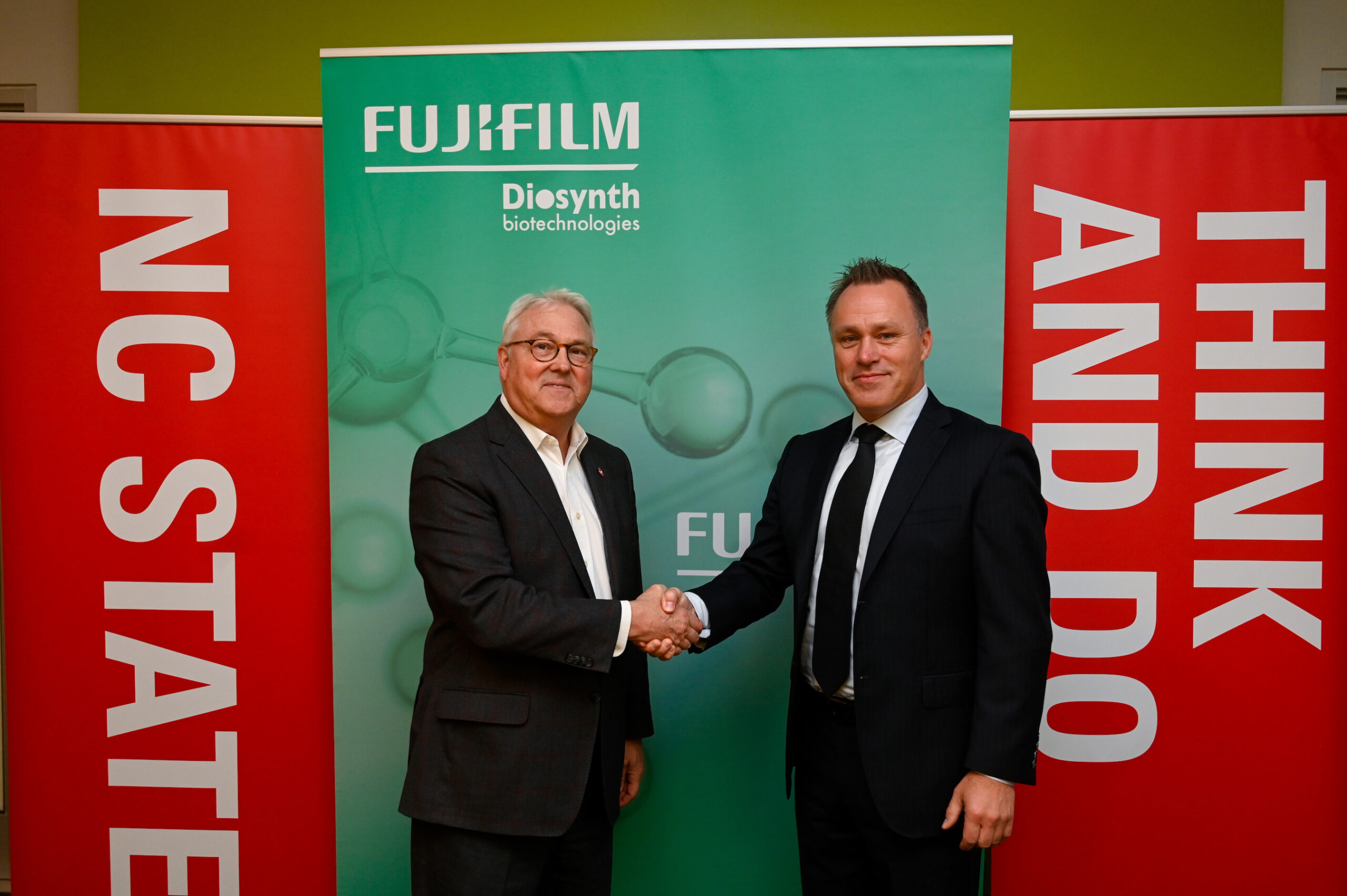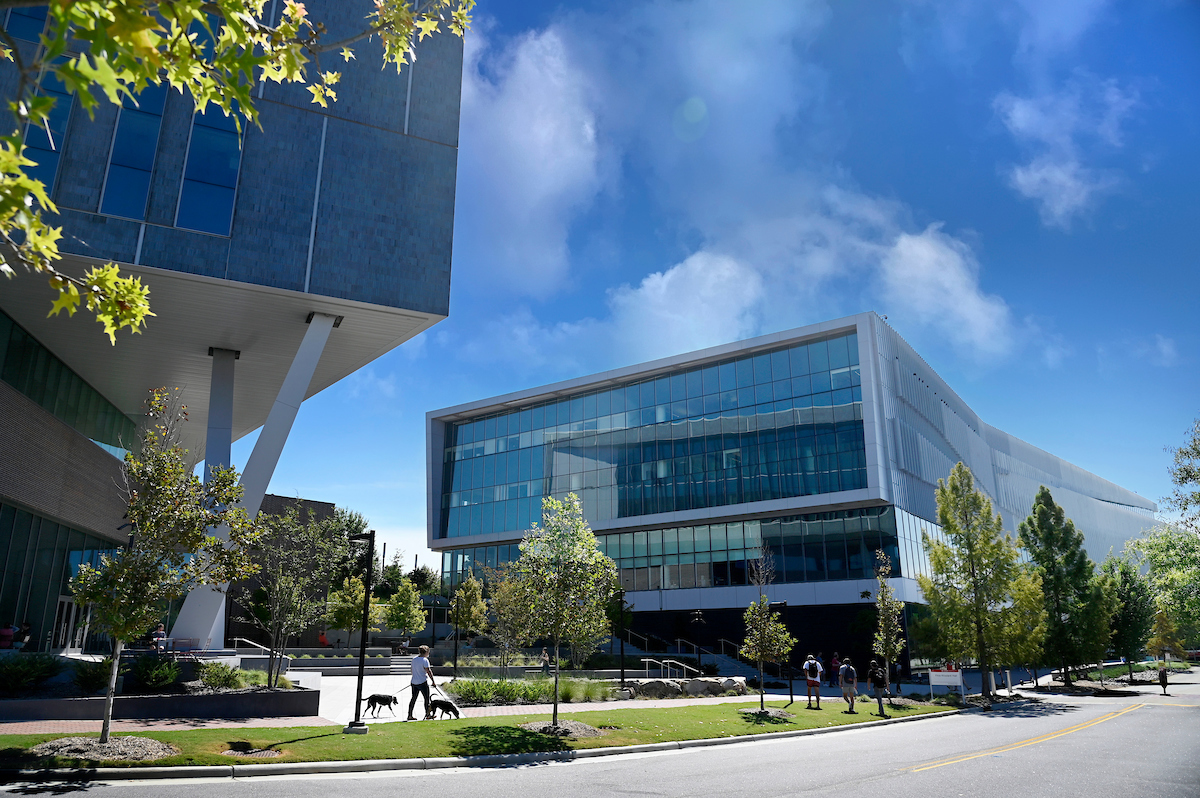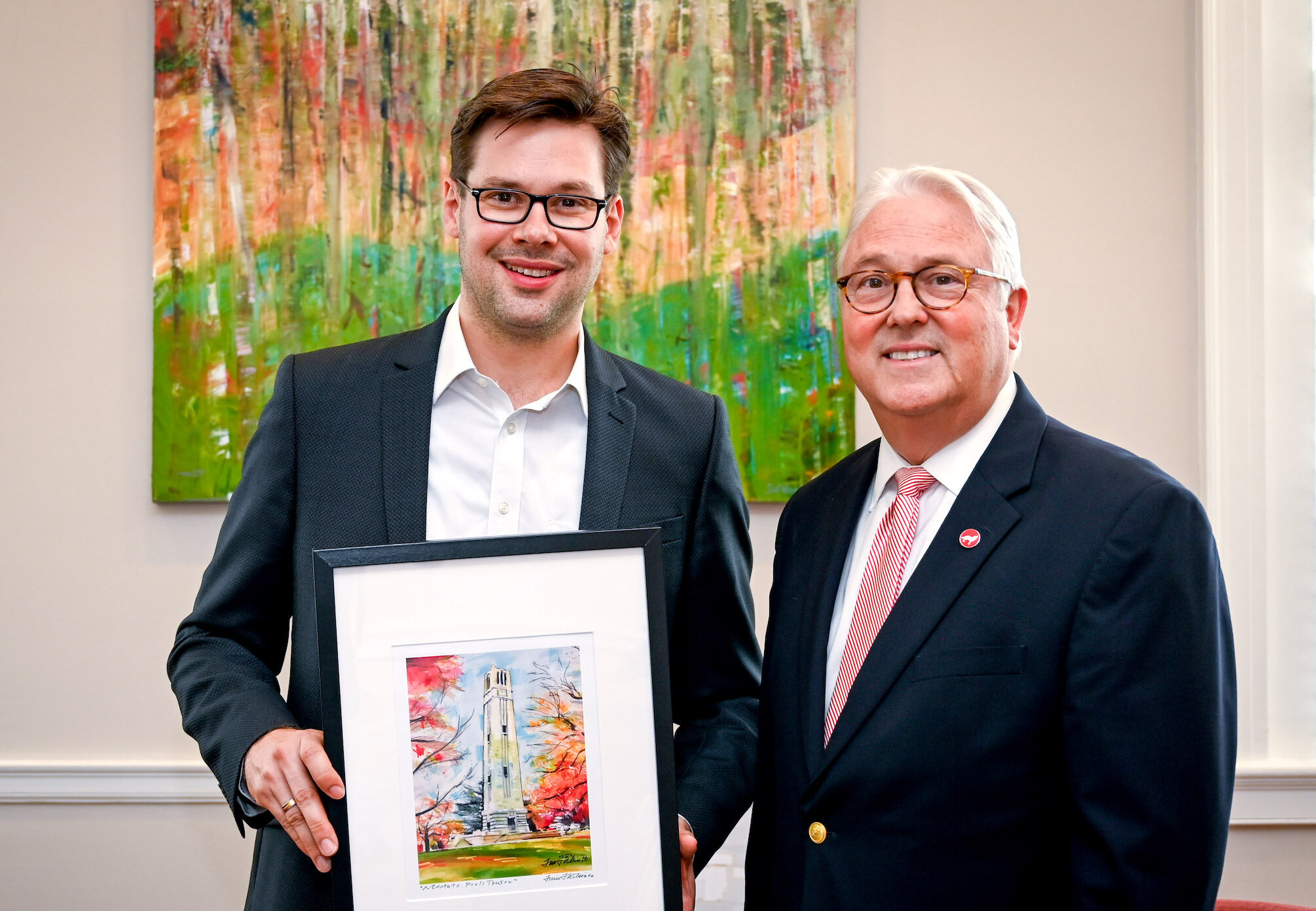FUJIFILM Diosynth Expands Strategic Partnership With NC State

FUJIFILM Diosynth Biotechnologies and NC State are expanding their strategic partnership to develop innovations focused on sustainable facility design and bioprocessing advancements. Through research projects, the partnership will support FUJIFILM Diosynth’s goal to achieve net-zero carbon emissions by 2030 for its new $2 billion biomanufacturing site in Holly Springs. Together, the organizations will also uncover bioprocess development techniques using machine learning, artificial intelligence and analytical methods.
At a November 11 ceremony held on NC State’s campus, Chancellor Randy Woodson and Kenneth Bilenberg, vice president and Holly Springs site lead for FUJIFILM Diosynth, signed a five-year research agreement.
“We are proud to partner with FUJIFILM Diosynth to develop sustainability solutions,” said Chancellor Woodson. “The research agreement will strengthen collaborations, provide new opportunities for NC State faculty and students, and will help FUJIFILM Diosynth achieve their goals.”
The new agreement builds on a growing partnership established in recent years. Already, more than 200 employees have completed advanced training through NC State’s Biotechnology Training and Education Center (BTEC). In addition, with the Holly Springs facility set to open by 2025, NC State landscape architecture and environmental planning experts are collaborating on sustainable site development plans to help FUJIFILM Diosynth achieve carbon neutrality. The future site design targets 100% clean energy utilization, implementation of cutting-edge waste disposal and recycling, among other sustainability plans.
Researchers in NC State’s College of Design are conducting an ecosystem services assessment to set and monitor environmental performance targets. The plan will guide the site’s sustainable development and ensure it delivers optimum benefits to the surrounding community. For example, improving wastewater treatment, and identifying the most environmentally beneficial ways to incorporate pollinators, natural learning gardens and other biodiversity features.
“We’ve built a strong relationship with NC State that started well before our 2021 announcement to build North America’s largest end-to-end cell culture biomanufacturing facility in Holly Springs,” said Bilenberg. “The partnership has already resulted in numerous improvements to achieve a facility design with sustainability at its core. The research agreement will enable increased collaborations with the university. NC State has the expertise to help reach our ambitious goals for the new site, not only with regard to sustainability and environmental stewardship, but also as we evaluate future greenway development and manufacturing efficiency projects.”
Existing collaborations have already resulted in sustainable design improvements for the new Holly Springs site. NC State performed a pre-development assessment at the site, and identified design strategies to minimize environmental impact, preserve biodiversity and restore the habitat, which includes restoration of more than 30 acres at the site.
The new research agreement will increase collaborations in the coming years. The first project is expected to begin by the end of 2022.


